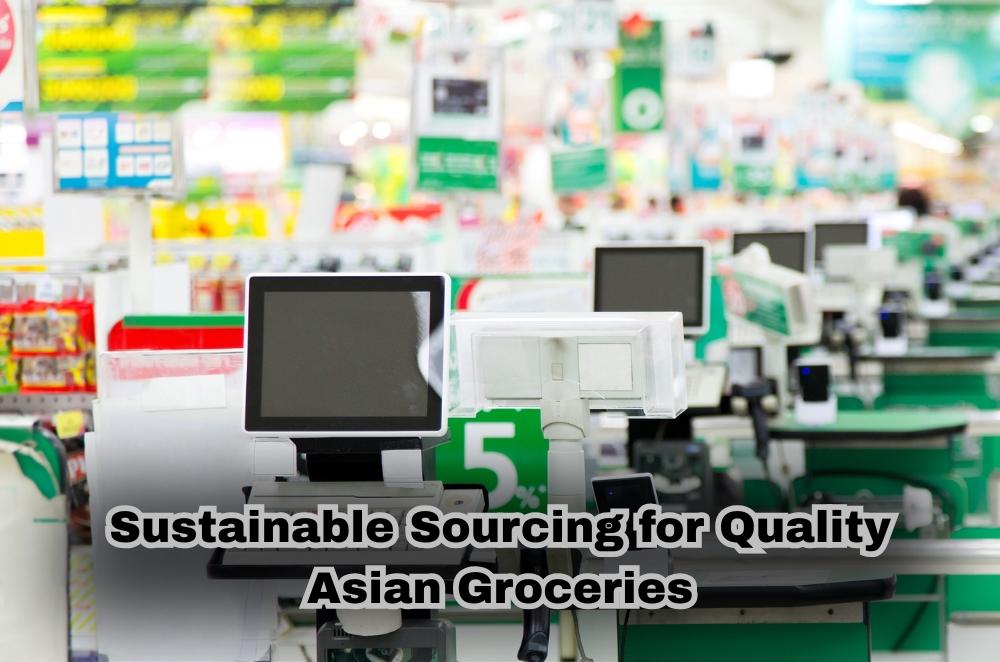Sustainable Sourcing for Quality Asian Groceries

Have you ever looked at a packet of dried noodles and wondered who made it? I have. In fact, that one thought shifted how I shopped for food. The truth is, what ends up on our plates has a backstory. It involves people, communities, travel routes, and sometimes choices that impact the environment in ways never seen.
That is why more Australians are thinking carefully about where their food comes from. This is especially true for culturally significant items like Asian pantry staples. Authenticity matters, but so do sustainability, food safety, and ethical practices.
At the centre of this shift is a need for Asian grocery stores to provide more than just shelf-stocking services. They have a responsibility to respect both the cultural origins of these goods and the future of the planet.
Choosing the right suppliers
We do not simply go after the lowest price. In our experience, the cheapest choice often comes with hidden costs. Instead, we focus on building relationships with suppliers whose values align with our own.
Here are some of the key things to look for:
-
Do they follow environmentally sound farming or production practices?
-
Are employees treated fairly, with respect and proper compensation?
-
Are cultural techniques being honoured rather than replaced?
-
Can we trace the entire journey of a product from origin to shelf?
One unforgettable moment for me was visiting a tofu-making shop in rural Japan. The father-and-son team there showed us every step of their process. Their method had not changed in over five decades. No preservatives. No shortcuts. Just craftsmanship passed down through generations. Supporting businesses like theirs is about more than just selling tofu—it is about preserving heritage.
Understanding food safety and compliance in Australia
One of the most important aspects of grocery retailing is food safety. It is not enough for a product to taste good or come from a respected producer. It must also meet national standards for packaging, ingredients, and labelling.
They strictly follow Australia’s food labelling standards to ensure all items are compliant. This includes information on allergens, country of origin, and proper nutritional data.
Many of our suppliers are not initially familiar with these rules. They provide guidance to help them meet local requirements, even when it means redesigning packaging. One of our noodle suppliers in Korea updated their salt content information on every pack based on our feedback. The result was a cleaner, more transparent product label that met consumer expectations.
When shoppers understand exactly what they are buying, they make better decisions. That trust is what they are building.
The real-life roadblocks of responsible importing
They would wish to claim sustainability is an easy trip. It really has tradeoffs everywhere. Importing ethically sourced products poses many difficulties.
Transportation is one big challenge. Some goods can only be brought fresh into the nation using air freight. But it comes with a price in emissions. If at all feasible, particularly for pantry goods with a long shelf life, give maritime shipping priority.
Packaging is another point of worry. Some international vendors still use non-recyclable plastic wrapping. Accept them at once. Start a discussion and propose alternatives instead. As a result, some have already changed to compostable choices.
And then there's certification. A label that claims organic in one nation may not meet the same standard in Australia. Before sending it to you, carefully consider every allegation. For instance, one Taiwanese snack brand claimed to be free of pesticides. Following the review, their local definition fell short of Australian expectations. Worked with them to improve their procedures so they could obtain a meaningful certification.
Although not simple, these are worthwhile endeavours.
Looking forward: Tech, traceability and consumer trust
Ahead, developing instruments that let customers have more knowledge and control. QR code packing is one intriguing innovation. You will soon be able to check a product in-store and see precisely where it originated. You will discover the people behind the harvest, how it was prepared, and even study their work.
This level of openness will change how consumers view food. They will be interacting with origin stories instead of merely checking expiry dates or price tags.
They are also developing a number of deep dive materials. One future tool will investigate imported food restrictions. This will help both curious consumers and business owners grasp the labyrinth of trade laws and customs regulations that impact what finally fills their trolleys.
The bigger picture: Make your shop count
Each item you add to your basket sends a message. By selecting ethically sourced and sustainably manufactured foods, you are voting for the kind of food system you wish to promote. Particularly important when purchasing basic Asian ingredients. From fermented bean paste to chilli oil, every product has a narrative combining contemporary accountability with culinary heritage.
Stop and consider next time you are strolling down the aisles of your preferred Asian grocery store. Every label, every container, every jar of sauce reflects choices that span far beyond just flavour or cost. They represent the efforts of importers, packers, designers, and farmers. These choices affect our way of eating, living, and interacting with cultures that could be thousands of kilometres distant yet feel close through food.
Selecting ethically obtained Asian cuisine basics allows you to help create a better future—one that honours both tradition and the environment. By doing this, your meals help everyone along the supply chain as part of a far bigger, more significant trip.
- Information Technology
- Office Equipment and Supplies
- Cars and Trucks
- Persons
- Books and Authors
- Tutorials
- Art
- Causes
- Crafts
- Dance
- Drinks
- Film
- Fitness
- Food
- Jeux
- Gardening
- Health
- Domicile
- Literature
- Music
- Networking
- Autre
- Party
- Religion
- Shopping
- Sports
- Theater
- Wellness



